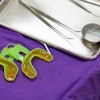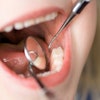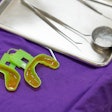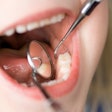Children with poor sleep quality may be more prone to excessive internet use and addiction, and both factors may be linked to poorer gum health, according to a study recently published in BMC Oral Health.
Accounting for digital media use and sleep habits may therefore be needed when assessing and preventing gum disease in adolescent patients, the authors wrote.
“Our findings suggest a significant relationship between internet usage, sleep quality, and periodontal health in adolescents,” wrote the authors, led by Nurcan Aksaka of the Istanbul Medipol University in Turkey (BMC Oral Health, August 26, 2025, Vol. 25, 1374).
The cross-sectional study evaluated 100 adolescents ages 12 to 18 during routine dental exams and periodontal treatment visits between September 2019 and September 2024. Internet use was assessed using the Young Internet Addiction Test (IAT), while sleep quality was measured using the Pittsburgh Sleep Quality Index, they wrote.
Additionally, clinical periodontal assessments included the gingival index (GI), the plaque index (PI), the probing pocket depth, and bleeding on probing, with PI measuring oral hygiene levels and GI scoring inflammation severity.
There was a significant relationship between sleep quality and weekly internet use (p = 0.02), according to the authors. In the poor sleep quality group, 30% used the internet more than 28 hours per week compared to 6% in the good sleep quality group. Participants with poor sleep quality also had significantly higher IAT scores than those with good sleep quality (p = 0.032), and 26.5% were classified as internet addicted versus 5% in the good sleep quality group, they wrote.
Total IAT score categories, however, did not differ significantly between the groups (p = 0.074). Comparisons showed that participants with poor sleep quality had significantly higher GI and PI scores (p=0.025, p=0.024).
Nevertheless, the study had limitations. Unmeasured factors like stress, diet, and physical activity may have affected sleep quality and periodontal outcomes, possibly influencing the results, the authors added.
“These findings highlight the importance of awareness and preventive strategies targeting digital behavior and oral hygiene in adolescents as part of comprehensive oral health promotion efforts,” they wrote.




















